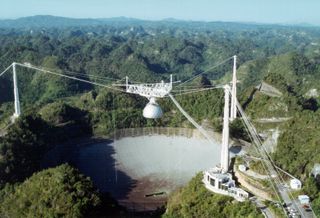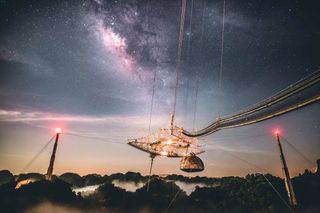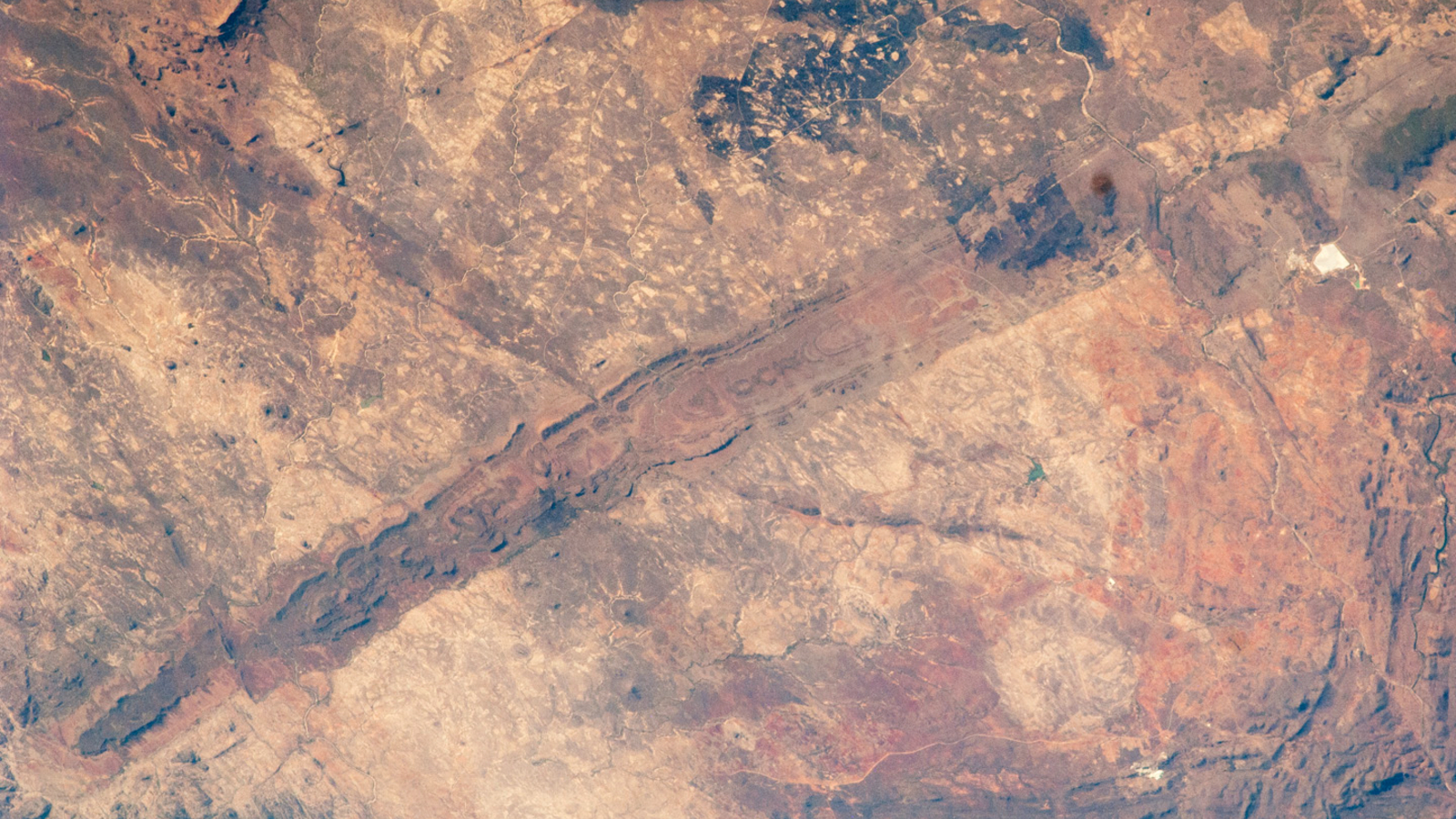Meghan Bartels
Meghan is a senior writer at Space.com and has more than five years' experience as a science journalist based in New York City. She joined Space.com in July 2018, with previous writing published in outlets including Newsweek and Audubon. Meghan earned an MA in science journalism from New York University and a BA in classics from Georgetown University, and in her free time she enjoys reading and visiting museums. Follow her on Twitter at @meghanbartels.
Latest articles by Meghan Bartels

Scientists catch 1st glimpse of a black hole swallowing a neutron star
By Meghan Bartels published
After more than four years of exploring a menagerie of cosmic happenings through gravitational waves, scientists have finally spotted the third expected variety of collision — twice.
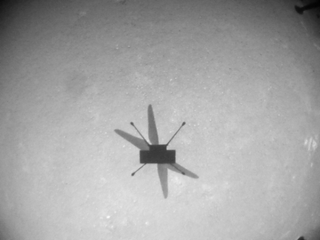
Mars helicopter Ingenuity nails 8th flight on the Red Planet
By Meghan Bartels published
NASA's experimental Mars helicopter has now flown eight times on the Red Planet, traveling farther than scientists hoped would be possible.
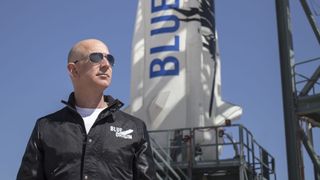
Jeff Bezos will fly on Blue Origin's 1st crewed flight
By Meghan Bartels published
The Amazon.com and Blue Origin founder announced on Instagram that he and his brother would fly on the New Shepard vehicle's first crewed flight, scheduled for July 20.
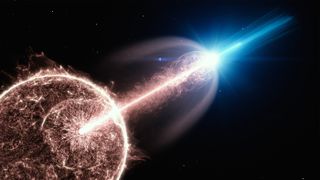
Weird nearby gamma-ray burst defies expectations
By Meghan Bartels published
A team of scientists has gotten their best look yet at a gamma-ray burst, the most dramatic type of explosion in the universe.

NASA's Curiosity rover spots strange, colorful clouds on Mars
By Meghan Bartels published
NASA's Curiosity rover just spotted a strange type of wispy cloud over its Gale Crater home on Mars.
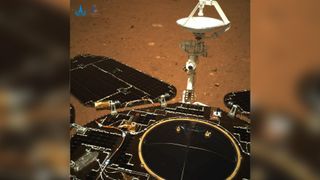
China unveils 1st Mars photos from Zhurong rover
By Meghan Bartels published
China has released the first photographs taken by its Zhurong rover, which touched down on Mars late on Friday (May 14) as part of the country's Tianwen-1 mission.
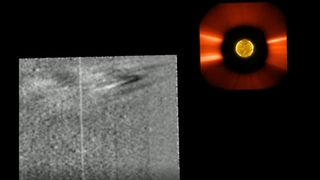
Solar Orbiter captures its 1st video of eruption on the sun
By Meghan Bartels published
A sun-studying spacecraft nabbed its first footage of a solar outburst before its science mission has officially begun.

Scientists paint best portrait yet of closest known fast radio burst
By Meghan Bartels published
Scientists have uncovered more details about perhaps the most famous repeating fast radio burst, a mysterious phenomenon astronomers cannot yet explain.
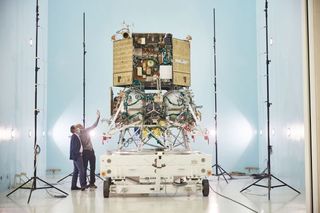
Russia is going back to the moon this year
By Meghan Bartels published
Russia is revisiting its Soviet space heritage for a new series of missions that will take the nation back to the moon.

NASA delays Mars helicopter Ingenuity's 1st flight to April 14
By Meghan Bartels published
NASA has delayed the first flight of its Mars helicopter Ingenuity after the vehicle's last test ended earlier than planned.

How the 'Worm Moon' helped free the stuck ship Ever Given in the Suez Canal
By Meghan Bartels published
It took a little help from the full moon to free the massive Ever Given cargo ship from its perch stranded across the Suez Canal.
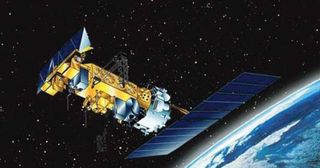
Defunct US weather satellite breaks up in Earth orbit
By Meghan Bartels published
A U.S. weather satellite that retired eight years ago has fallen apart in orbit, breaking into at least 16 pieces, according to government representatives.
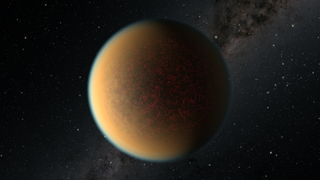
This strange lava-rich alien planet is making itself a new atmosphere
By Meghan Bartels published
Scientists think they've spied an alien world that lost its atmosphere — then conjured itself a new one.
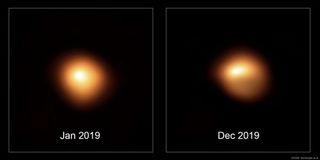
Scientists still stuck on Betelgeuse antics a year after strange dimming episode
By Meghan Bartels published
A year ago, the bright red star Betelgeuse in the Orion constellation hit the headlines for a stark fading episode that astronomers couldn't explain. They still can't, although they keep trying.
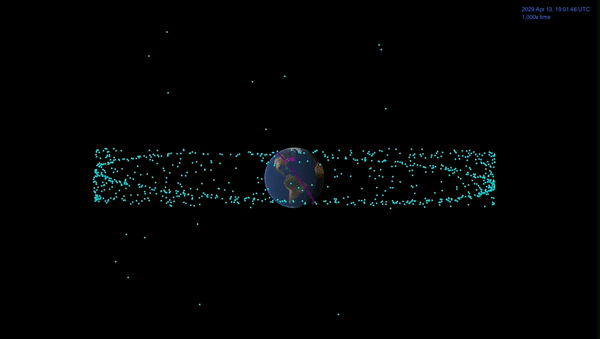
Planetary defense experts use infamous asteroid Apophis to practice spotting dangerous space rocks
By Meghan Bartels published
Eight years after an asteroid exploded over Chelyabinsk, Russia, scientists are taking advantage of a flyby of the infamous asteroid Apophis to practice protecting Earth from space rocks.

Scientists prepare for their last good look at asteroid Apophis before 2029 flyby
By Meghan Bartels published
On March 5, wave hello to the most infamous asteroid that won't slam into Earth in 2029. Scientists sure will.

Welcome to Mars! UAE's Hope probe enters orbit around Red Planet.
By Meghan Bartels published
After a nail-biting 27 minutes, the United Arab Emirates' (UAE) first-ever interplanetary mission has successfully reached orbit around Mars.
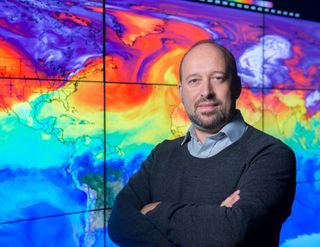
NASA appoints climate advisor to prioritize Earth science in Biden administration
By Meghan Bartels published
Tackling the climate crisis is one of President Joe Biden's top priorities, and NASA has created a new role to match.
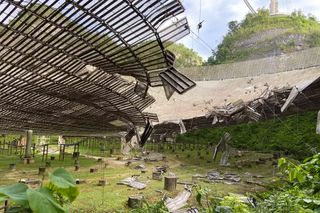
Famous alien-hunting telescope collapsed in December. Now, investigators might know why.
By Meghan Bartels published
An ongoing investigation of the December collapse of the iconic radio telescope at Arecibo Observatory in Puerto Rico offers early evidence a manufacturing issue may have contributed to the failure.
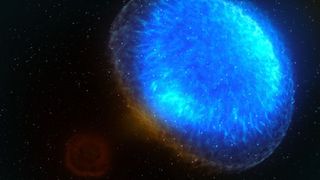
A neutron-star crash spotted 3 years ago is still pumping out X-rays. But why?
By Meghan Bartels published
Three years ago, two neutron stars collided in a cataclysmic crash, the first such merger ever observed directly. Naturally, scientists kept their eye on it — and now, something strange is happening.
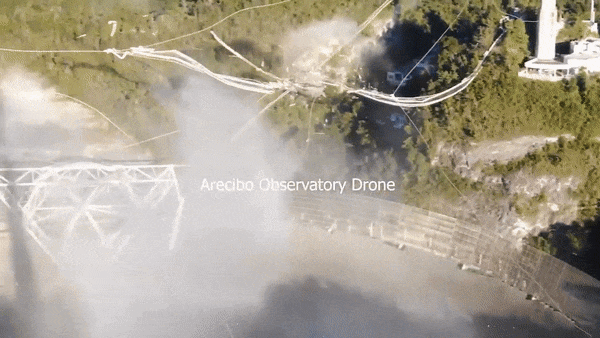
Astronomers are still reeling from the loss of iconic Arecibo radio telescope
By Meghan Bartels published
The collapse of the iconic radio telescope at the Arecibo Observatory in Puerto Rico last month has left astronomers with a host of questions about what went wrong and what comes next.
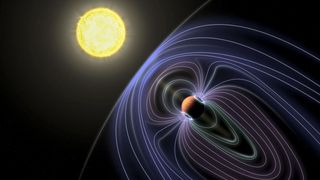
Scientists think they've detected radio emissions from an alien world
By Meghan Bartels published
Scientists may have detected radio emissions from a planet orbiting a star beyond our sun for the first time.
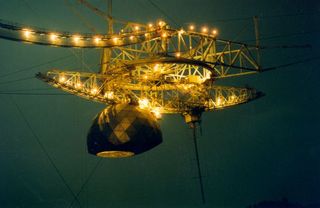
Puerto Rican scientists mourn loss of Arecibo Observatory's iconic telescope
By Meghan Bartels published
In a year full of terrible new sorrows and burdens, the collapse of Arecibo Observatory's iconic radio telescope feels like a particularly brutal loss to Puerto Ricans.
Get the world’s most fascinating discoveries delivered straight to your inbox.
